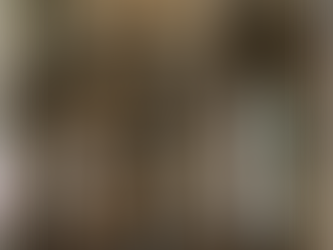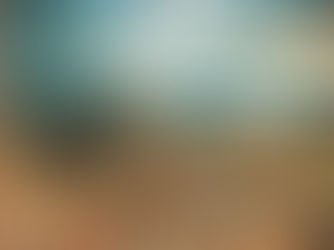top of page
Articles


Law x Art: A Two-way Street of Mutual Productive Irritation
Both art and science have been cornerstones of western society for millennia, yet their synthesis—artistic research—has yet to achieve widespread acceptance in European […] academies. Samuel Penderbayne[1] Artistic Research Artistic research has many faces. [2] For some it is research ‘about’ art (art as research object : art history [3] as well as artists’ self-exploration into their own body of work). [4] For others it is research ‘for’ art (art as research objective

Lucia Sommerer
20 min read


‘Fair and Responsible’ Re-Presentation of Early Ethnographic Photography
Introduction Recent scholarship on early photography examines the photograph as primary source material in order to identify and explore ‘veins of influence’ that operate on, through, and from it. The ‘veins of influence’ analysis developed in that research brings us, whether as professional creatives, academics, or other participants, into dialogue with the photograph. Through such engagement, we become active participants in and agents of influence, shaping how these earl

Shalini Ganendra
22 min read


Reanimating Isabella D’Este: In Conversation with Sarah Dunant
Sarah Dunant is a novelist, broadcaster, and cultural critic whose work blurs the line between historical inquiry and literary imagination. Best known for her fiction set in Renaissance Italy, she gives voice to women whose lives have been obscured by time, deftly merging narrative and historicism. Rendering the past not as backdrop but as pulse, Dunant allows history to unfold with the texture of lived experience. Her acclaimed novels, The Birth of Venus , In the Company of

Lily-Rose Morris-Zumin
22 min read


The Origins of Art: ‘Sentio ergo sum’
Art has been part of our being for millions of years—possibly even before the beginning of our genus Homo—without being understood as what we now call art. From the beginning, it was simply another way of knowing, probably our first, of coping with what confronted us in our environment as a necessary way of surviving in it and sharing that knowledge with others. It sprang from an emotional reaction to what existed outside of us and how we translated that feeling to pass it on

Don Foresta
30 min read


Bringing Meaning to the Marketplace
Abstract The authors, faculty members at Northeastern University and Boston University, highlight the shifting values and priorities of...

Wendy Swart Grossman and Jeannette Guillemin
15 min read


Ornament as Design: Azulejos Tiles as Hybrid Language
Blue and white, occasionally with touches of yellow, ceramic tiles adorn not simply the façades and interiors of countless Portuguese...

Caroline DeFrias
20 min read


Advances, Withdrawals, and Retirement Plans: Artists and their Publics
‘I am staying unsettled and trying not to talk for three years’, the painter Agnes Martin wrote to a friend in the late 1960s, adding, ‘I...

Nancy Princenthal
8 min read


History in Turmoil
Convince an enemy, convince him that he’s wrong Is to win a bloodless battle where victory is long A simple act of faith, in reason over...

Dmitri Safronov
50 min read


A Revolution in Thought? How Hemisphere Theory Helps us Understand the Metacrisis
Carved into the stone of the ancient temple of Apollo at Delphi was the injunction to ‘know thyself’. Without such knowledge we are tossed this way and that by forces we neither suspect nor understand. Knowing ourselves helps explain our predicament; and doing so is greatly aided by understanding an aspect of the way in which the brain constructs the world. I believe we have adopted a limited vision of a very particular type, and precisely because it is limited we cannot se

Iain McGilchrist
30 min read


Rebel Rebel: In Conversation with Soheila Sokhanvari
Soheila Sokhanvari is a British-Iranian artist whose diverse practice delves into the complexities of identity, politics, and social...

Nancy Lura
23 min read


When Is an Artwork Finished? Revisiting the Question
When is an artwork finished? Ann Landi, a contributing Editor of ARTnews , wrote an article that explored the question of when an...

Amir Pichhadze
17 min read


From Syria to the Silver Screen: In Conversation with Jay Abdo
Jay Abdo is a Syrian actor and human rights activist, who has featured in various films and television shows in the Middle East and...

Nour Kachi
15 min read


The Airspace Tribunal and the Right to Live Without Physical or Psychological Threat from Above: In Conversation with Shona Illingworth and Nick Grief
Shona Illingworth is a Danish-Scottish artist and Professor of Art, Film and Media at the University of Kent, UK. Her work examines the impact of accelerating military, industrial, and environmental transformations of airspace and outer space and the implications for human rights. She is co-founder with Nick Grief of the Airspace Tribunal ( https://airspacetribunal.org/ ). Recent solo exhibitions include Topologies of Air at Les Abattoirs, Musée—Frac Occitanie, Toulouse (2022

Aidan Johnson
20 min read


‘In Place of Hate’: In Conversation with Edmund Clark
Edmund Clark uses photography, film, found imagery, and text to explore links between representation and politics. Clark’s work has been exhibited internationally at the Imperial War Museum, London, International Center of Photography Museum, New York, Zephyr, Reiss-Engelhorn-Museen, Mannheim, Huis Marseille Museum, Amsterdam, Houston Center for Photography, Texas, Saatchi Gallery, London, and Imperial War Museum North, Manchester. His work has been acquired for national and

Gabriella Kardos
19 min read


Traversing Boundaries: In Conversation with Peter Krausz
Peter Krausz was born in Romania in 1946. He studied mural painting from 1964 to 1969 at the Bucharest Institute of Fine Arts. Since 1970, he has made Montreal his home. His diverse artistic production includes painting, drawing, installation, and photography. From 1980 to 1990, he was the curator of the Saidye Bronfman Centre Art Gallery and a teacher at Concordia University. In 1991, he joined the faculty at the University of Montreal where he is now a tenured Professor of

Gabriella Kardos
16 min read


Ammar and His Art: Death and Life at Guantanamo Bay
In January 2018, veteran actress Caroline Lagerfelt stepped into the John Jay College of Criminal Justice in New York City. She was there to see ‘Ode to the Sea’, an exhibition of artwork by detainees at Guantanamo Bay, which at that point had been open for 16 years, with no end in sight. Lagerfelt had known about the atrocities committed at Guantanamo for some time. In fact, she had played British human rights lawyer Gareth Peirce in a play about Guantanamo 14 years earlie

Alka Pradhan
20 min read


Self-Identity and the Politics of Latex: In Conversation with KV Duong
KV Duong was born in Ho Chi Minh City, Vietnam, in 1980. He emigrated to Toronto, Canada with his family in 1987 and moved to London, UK on his own in 2010. His art practice spans painting, sculpture, installation, and live performance. In 2022, KV had a solo exhibition titled ‘Too Foreign for Home, Too Foreign for Here’ at the Migration Museum in London, followed by ‘No Place Like Home’ at the Museum of the Home in 2023, a group exhibition of eight artists from the Vietnames

Gabriella Kardos
7 min read


Directing The Mauritanian: In Conversation with Kevin Macdonald
Over his career, Kevin Macdonald has directed a plethora of documentaries and films which have garnered critical acclaim and popular success. Not one to shy away from sensitive and complex subject matter, Kevin’s work depicts unsanitised, thought-provoking stories, from a documentary on antisemitism to a film on a prisoner in Guantanamo. For the former, Kevin was awarded an Academy Award for Best Documentary feature. His latest film, The Mauritanian , explores the real story

Fabienne Marshall
13 min read


Lady in Blue, Trafalgar Square, London’s Fourth Plinth Commission for 2026: In Conversation with Tschabalala Self
Tschabalala Self (b. 1990 Harlem, USA) lives and works in Hudson Valley, New York. Tschabalala is an artist and builds a singular style from the syncretic use of both painting and printmaking to explore ideas about the black body. She constructs depictions of predominantly female bodies using a combination of sewn, printed, and painted materials, traversing different artistic and craft traditions. The formal and conceptual aspects of Self's work seek to expand her critical in

Gabriella Kardos
5 min read


Tibet’s Advocate: In Conversation with Dhondup Wangchen
Dhondup Wangchen is a Tibetan filmmaker. As a self-taught filmmaker, he secretly shot Leaving Fear Behind in response to the Beijing 2008 Olympics and the International Olympic Committee’s failed promise of improved rights for the Tibetan people. The documentary was cut together from footage smuggled out of Tibet and uncovered life in Tibet under Chinese communist rule. Dhondup was subsequently imprisoned for six years during the 2008 Tibetan uprising for subversion of state

Nancy Lura
12 min read


Images of Iran’s Resistance: In Conversation with Roshi Rouzbehani
Roshi Rouzbehani, a London-based Iranian illustrator, uses her captivating artwork to champion social causes. Beyond captivating aesthetics, her editorial and portrait illustrations address critical issues like gender equality, women’s rights, and mental health awareness, sparking conversations and advocating for positive change. CJLPA : Thank you for taking the time to interview with The Cambridge Journal of Law, Politics, and Art to discuss your work as an illustrator and

Solomon Njombai
11 min read


Anemones of the People
Knuckle dragging, low-slung, dead pig-eyed, A belch or a growl passes for thought, Ogres, tramping through dirty snow fields To sniff out...

Paul Pickering
2 min read


Film and Culture in Sudan’s Civil War: In Conversation with Ibrahim Ahmad
Sudanese filmmaker Ibrahim Ahmad exposes human rights abuses through his award-winning films. Chronicling the atrocities in Sudan, his work fights for justice and a better future. CJLPA : We would like to begin by thanking you for taking the time to interview with The Cambridge Journal of Law, Politics, and Art . Your extensive career as a film maker, combined with your expertise as an activist, provides a valuable perspective on pressing Sudanese human rights issues and poli

Solomon Njombai
17 min read


My Dark Drawings
My Dark Drawings begin as I cover the white paper with the blackest of black charcoal. Working in a spontaneous manner I push and pull the charcoal this way and that, allowing the initial flow to take what direction it will. The surface is quickly loaded, black completely dominating white—but it is the white that holds the key. I rub, smear, and cover, standing back looking hard as I search for clues offered by remaining outposts of white. Soon enough my hand goes to work, l

Lee Tribe
3 min read
bottom of page

